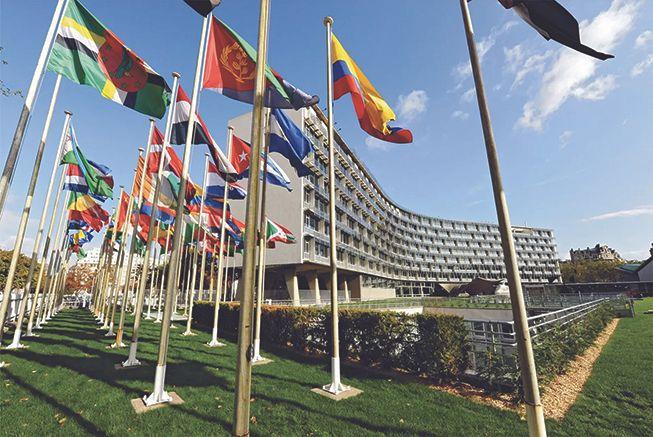The United States has officially rejoined the United Nations Educational, Scientific and Cultural Organization (Unesco) after a five-year absence. The country is now the 194th member state of the international, Paris-based agency, whose responsibilities include protecting cultural heritage and improving literacy, among other global issues.
The US government announced that it was seeking re-entry into Unesco in June, with member states voting overwhelmingly to readmit the country during a two-day session late last month. The decision to re-engage with Unesco was motivated by the Biden administration’s concerns over China’s growing influence on the United Nations body, with China increasing its contributions to Unesco to around $65m. The US’s readmission, which involves repayment of more than $600m in membership fees, is an attempt to counter this hold.
“This is a historic moment,” Unesco director-general Audrey Azoulay said in a press release. “Our Organization is once again moving towards universality … it is excellent news for multilateralism as a whole. If we want to meet the challenges of our century, there can only be a collective response.”
The US, which helped found Unesco after the Second World War, officially withdrew from the agency in 2019 under the Trump administration. Officials at the time cited a perceived “anti-Israel bias”, with then-US ambassador to the United Nations Nikki Haley calling it “among the most corrupt and politically biased UN agencies”. Tensions had been building for years, with both the US and Israel ceasing funding to Unesco after it voted to admit Palestine as a full member in 2011.
The Biden administration has requested $150m in the budget for fiscal year 2024 to begin paying back the US’s membership arrears, which total around $619m.
“The return of the United States, and the additional resources that go with that, will help us to provide even better support for everyone around the world: pupils and students, researchers, academics, artists, educators, journalists—all those on whom our daily work is focused,” Azoulay said. “UNESCO will also have more resources for its two strategic priorities, Africa and gender equality.”

























